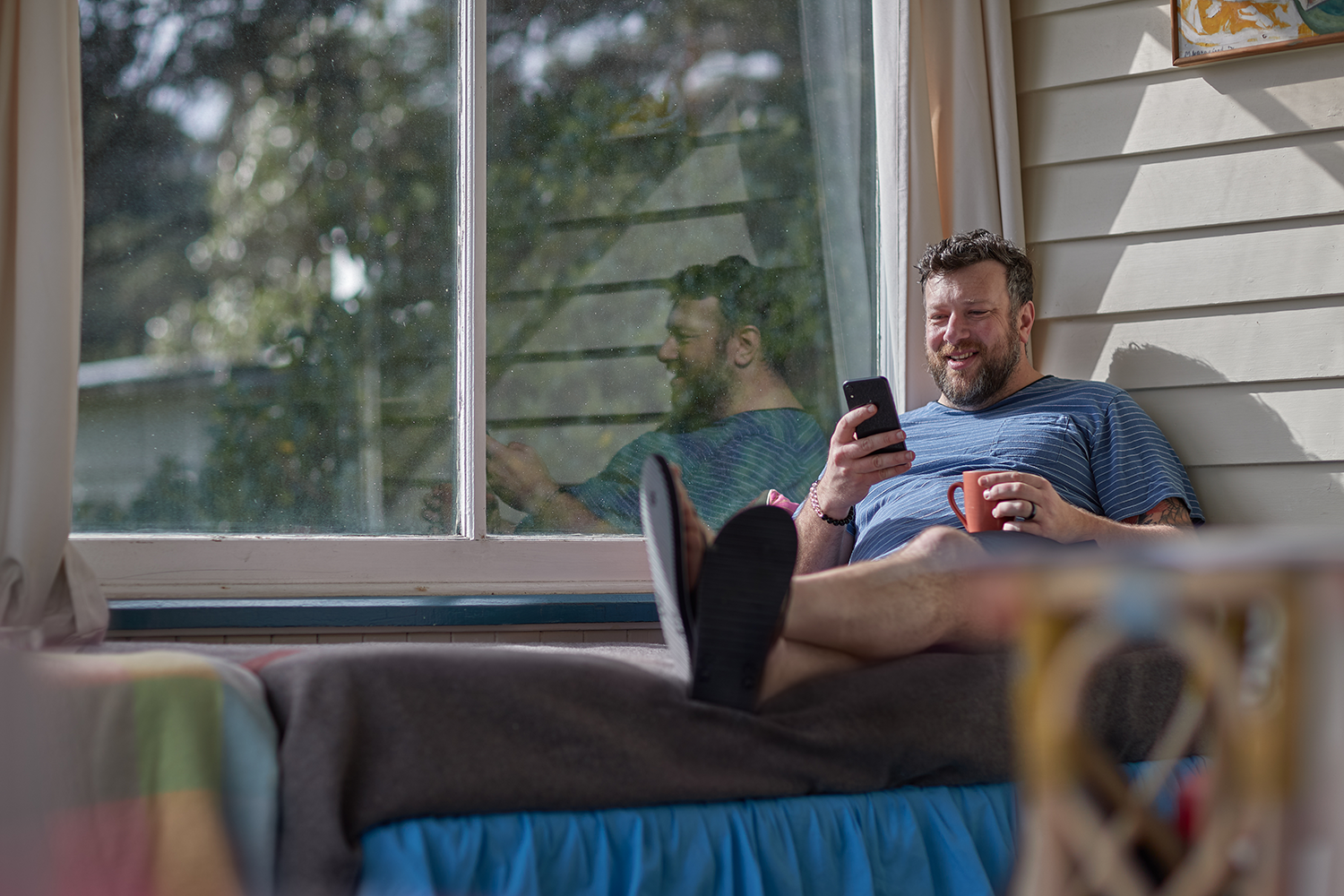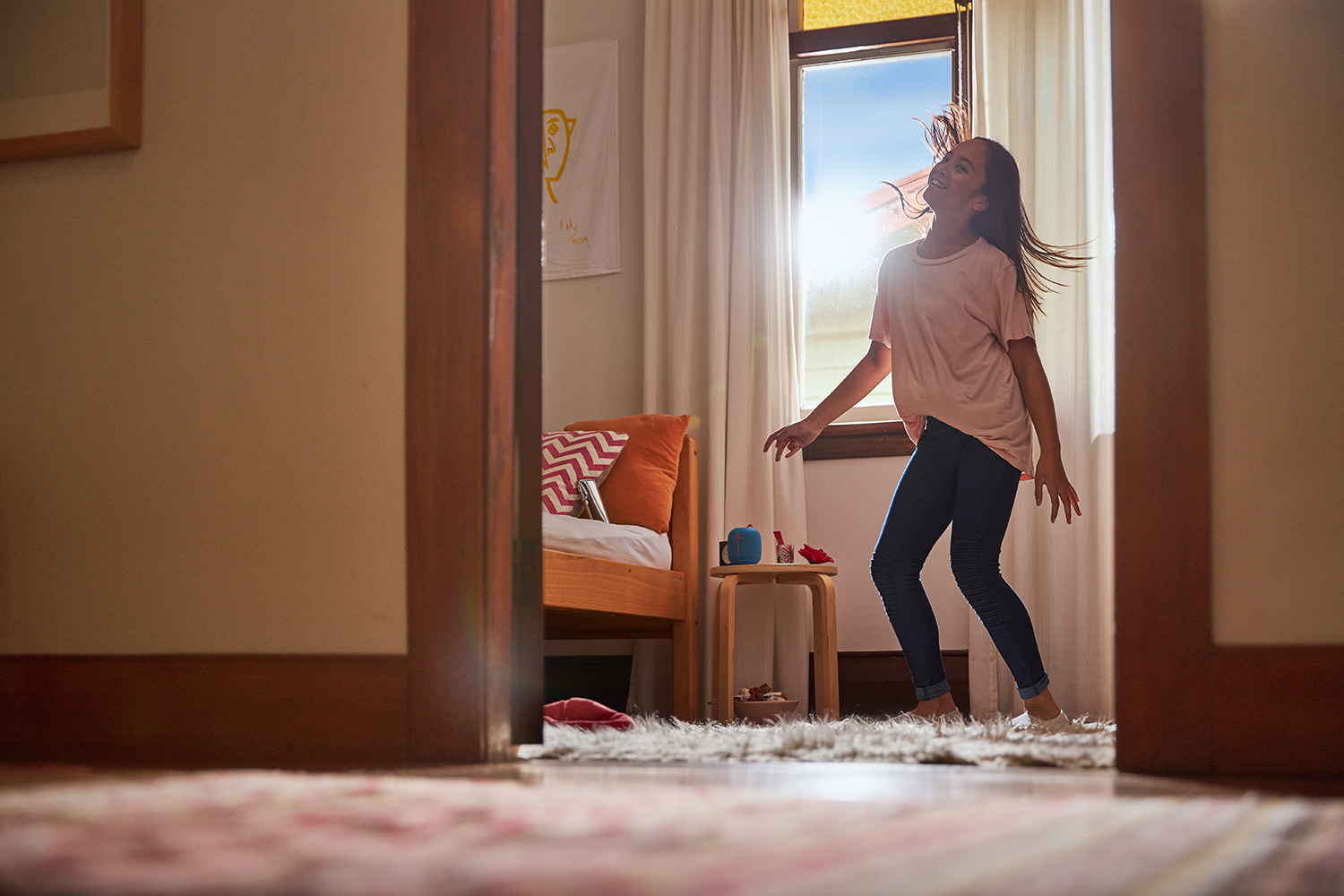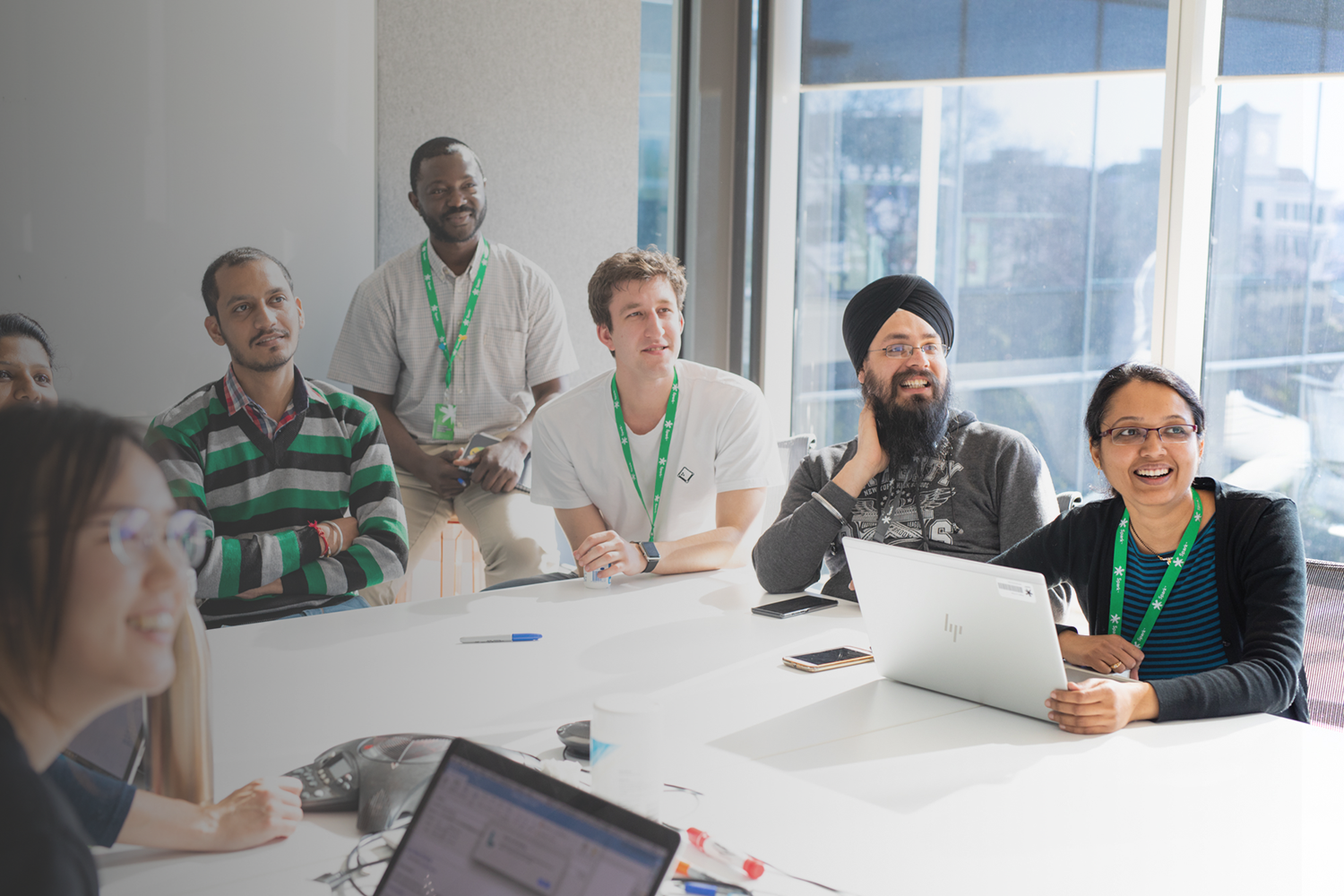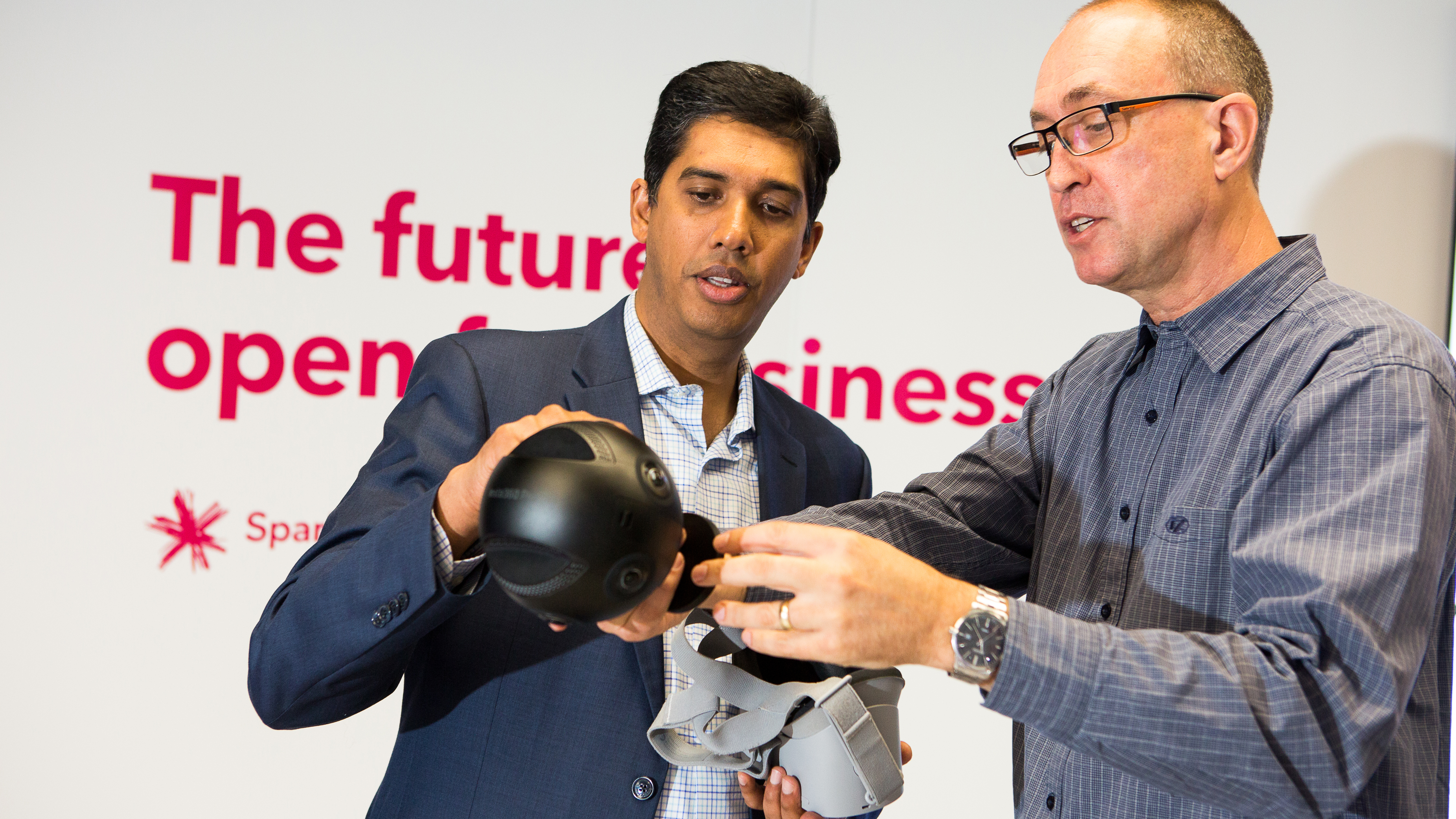Please configure
Spark’s 5G Co-Lab space opens door to Kiwi Charity Patience Project
Spark’s 5G Co-Lab space is open for business and charity Patience Project is one of the first organisations to move in and use Spark’s pre-commercial 5G network with the aim of combating social isolation for Kiwi children diagnosed with a long-term illness.
Initiator of the Patience Project, Ben Martel, gave up his day job to fulfil a promise he made to his son Liam, before he died three years ago. “Liam had undergone a three-year journey with cancer and a degenerative lung condition. We soon realised what he missed most was the normal everyday interaction of going to school, and in his final days he asked me to do something that made a positive difference for children diagnosed with a condition that involved long-term treatment.”
So, Ben came up with the idea of equipping children enduring long-term illnesses with a virtual reality headset and putting a 360-degree live streaming camera inside their classrooms. That way, a child confined in a hospital ward or bedroom could be virtually transported to school and have the ability to take an active part in lessons as well as benefit from a social connection with his or her peers.
The concept was piloted, and research undertaken by the University of Auckland validated what Ben was hoping for. “At a time of feeling vulnerable, perhaps disfigured from treatment or unable to go out into the world due to the risk of infection, all children experienced being included whilst still enjoying safety and privacy,” explains Ben.
However, the pilot also confirmed Ben’s concerns. Under 4G technology, the Patience Project would have difficulty to scale up and therefore reach sick children at a national level. It also identified limitations such as the inability for real-time two-way communication, potential motion sickness whilst using virtual reality headsets, a significant time lag between what was happening in the classroom and the patient, as well as the restriction of having the equipment secured in one space at a time.
Spark’s General Manager of Value Management, Raj Singh, said that he’s really excited to have the Patience Project in Spark’s 5G Co-Lab space and is thrilled to see that with the help of Spark’s network team, they are exploring new possibilities and overcoming obstacles faced under today’s technology.
“With the flexibility of 5G, the Patience Project has the potential to reach far more children experiencing long-term illnesses due to its ability to not rely on expensive hardware and utilise more cost-effective technologies such as cloud computing. This means that the 360-degree camera can be wireless and will no longer be stuck in one classroom but have the ability to move from class to class, or even go on field trips.”
“Furthermore, 5G’s ability to reach up to 100x faster speeds combined with low latency will greatly help to minimise motion sickness that many experience whilst using the virtual reality headset and patients can experience real-time two-way communication via voice without lag,” * says Raj.
By harnessing a simple idea and combining it with cutting-edge technology, the Patience Project has the potential to improve lives, starting with some of the approx. 150 New Zealand children diagnosed with cancer each year**. Ben also hopes to use the same technology to help even more Kiwis, whether it be teenagers suffering from anxiety or giving elderly people the chance for regular social connections.
“By being one of the first in New Zealand to utilise and explore the potential of 5G technology, I discovered not only that it could overcome the current limitations, but also give me the ability to start developing and expanding the future of the Patience Project. I plan to keep collaborating with Spark at their 5G Co-Lab space to test and innovate so more Kiwi children can have a sense of normality, an escape from the reality of being sick and have hope for the future,” says Ben.
To help The Patience Project grow, donate at https://givealittle.co.nz/cause/lets-get-100-children-back-in-class.
The 5G Co-Lab space is a purpose-built facility designed to give New Zealand companies access to a 5G network whilst collaborating with Spark’s network team to create and foster ideas, products and experiences with innovation at its heart. For more information on Spark’s 5G Co-Lab or to apply to book a testing session visit www.spark.co.nz/5g
- END –
Notes to the editor:
- Late last year, Spark opened NZ’s first interactive 5G test lab in Wynyard Quarter to launch its pre-commercial 5G network and showcase 5G technology. Now, the Lab has officially opened a second area – the Co-Lab space, designed to give NZ companies access to a 5G network so they can collaborate with Spark and foster ideas, products and experiences with innovation at its heart.
- The Patience Project was piloted under 4G technology.
- Latency: The time it takes for data to travel from a device (i.e. a smartphone) to the network and back.
- * 5G speeds are based on indoor tests performed at the Spark 5G Lab
- **https://www.kidshealth.org.nz/childrens-cancer-services-new-zealand

Cassie Arauzo
+64 21 0249 1562 | Cassie.Arauzo@spark.co.nz
Please configure








